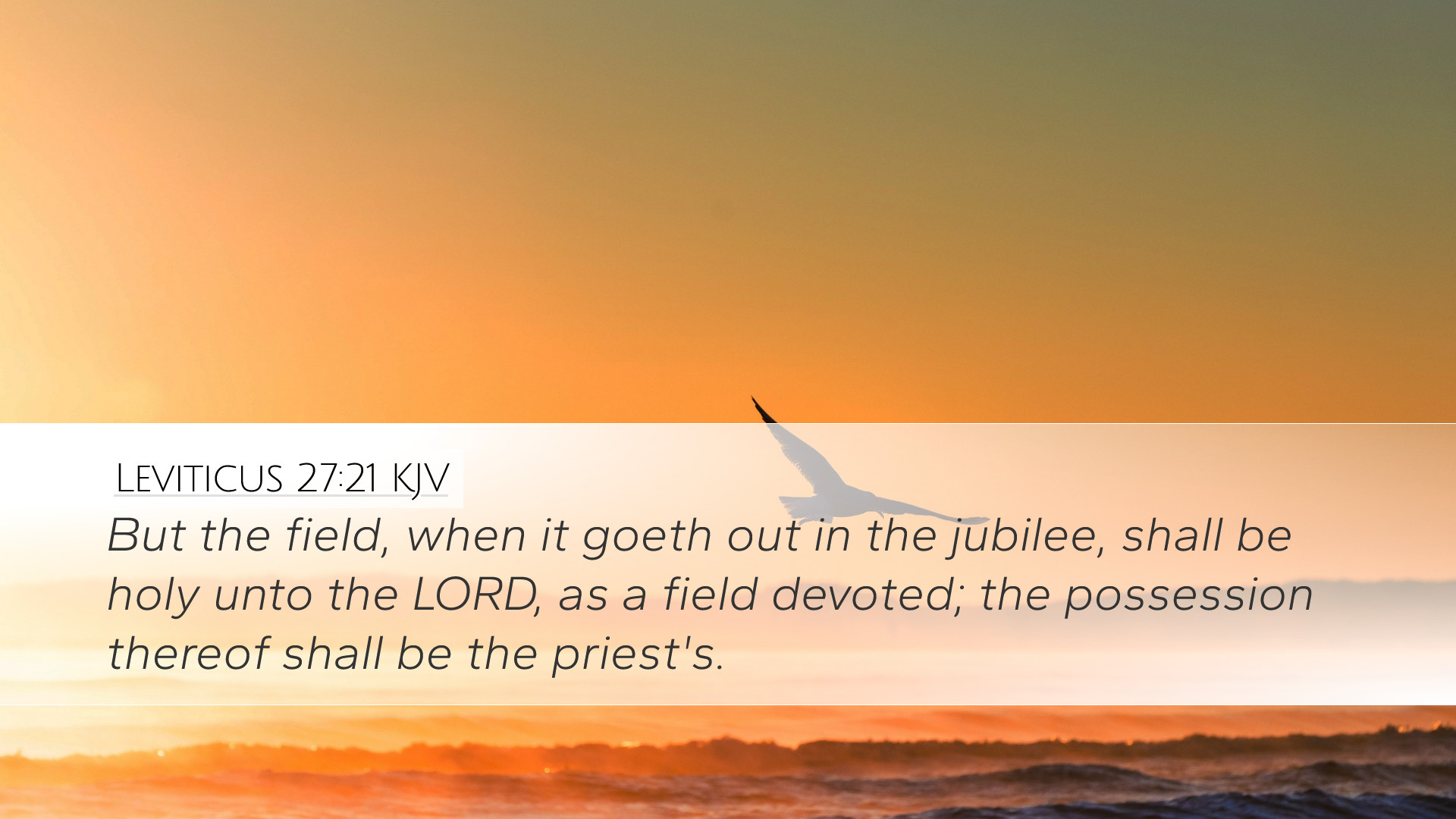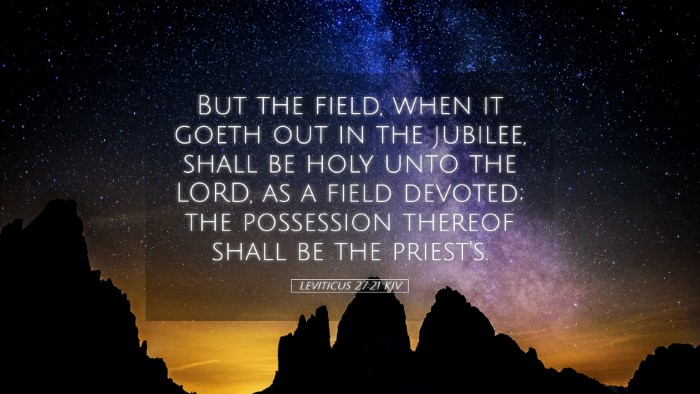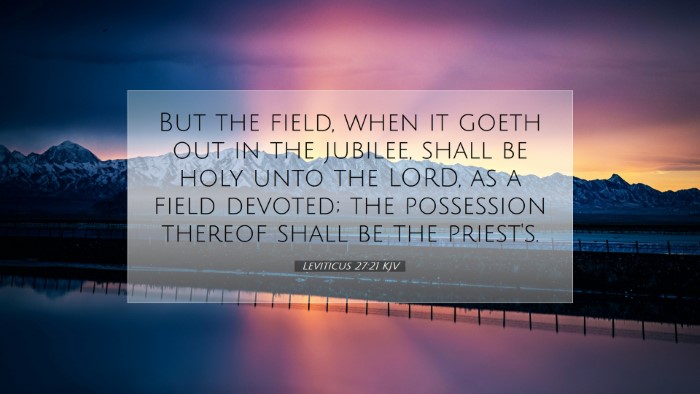Commentary on Leviticus 27:21
Verse: Leviticus 27:21 - "But the field, when it goeth out in the jubilee, shall be holy unto the Lord, as a field devoted; the possession thereof shall be the priests’."
Context and Overview
The book of Leviticus is a vital component of the Pentateuch, offering detailed instructions for the priesthood and the Israelites on maintaining holiness and proper worship. Chapter 27 specifically addresses the system of vows and dedicatory offerings, emphasizing the depth of commitment to God in both personal and community spheres.
Understanding the Text
In Leviticus 27:21, the text discusses fields that have been dedicated to the Lord. The concept of jubilee, referenced here, relates to the restoration of property every fiftieth year. This law underscores the importance of divine ownership and stewardship within the historical Israelite context.
Insights from Public Domain Commentaries
Matthew Henry's Commentary
Henry elucidates the nature of possessions under divine ownership. He notes that all property ultimately belongs to God, and dedicating a field signifies a complete commitment of the believer's resources to the Lord’s service. The phrase "holy unto the Lord" implies a separation from common use, indicating that the field cannot be utilized for ordinary purposes once dedicated. This sacred status attaches a higher calling to the land, elevating the responsibilities of its steward, particularly the priests.
Albert Barnes' Notes on the Bible
Barnes emphasizes the socio-economic implications of this law. The jubilee not only serves to redistribute land among families but also reconnects the community with their spiritual heritage. He argues that such a practice teaches the Israelites about reliance on God’s provision, reinforcing the notion that God is ultimately the source of all blessings. The expert handling of fields devoted to the Lord was to be a model of faithfulness that illustrated divine trustworthiness.
Adam Clarke's Commentary
Clarke provides a detailed examination of the priestly responsibilities concerning the fields mentioned in this verse. He points out that the priests were not just religious leaders, but custodians of God's holy things. The implication here is that the priests were to oversee and ensure that these fields remain "holy" and used appropriately for the Lord’s purposes. Clarke highlights the necessity of governance and order in the use of what is sacred, reinforcing that the devotion required is both personal and communal.
Theological Implications
Leviticus 27:21 serves as a powerful reminder of the need for holiness in every aspect of life, especially concerning our possessions. The idea of dedicating material goods is still relevant today, as Christians are called to view all they have through the lens of stewardship. This verse invites believers to consider how they can honor God with their resources, just as the Israelites were commanded to do.
Practical Application for Today's Believer
- Stewardship: Believers must recognize that all they possess belongs to the Lord. This dedication requires careful management of their resources in a way that honors God.
- Community Impact: The example of communal jubilee indicates the need for Christians to support and uplift their communities, mirroring God’s provision and mercy.
- Holiness: Understanding what it means to live a life dedicated to God reinforces the importance of personal holiness in the mundane aspects of life, including work and possessions.
Conclusion
Leviticus 27:21 captures a pivotal truth about the nature of God’s ownership and our role as stewards of His gifts. The reflections from Matthew Henry, Albert Barnes, and Adam Clarke encourage a deeper understanding of faith as it intersects with every aspect of life, from property management to the core of spiritual devotion. In this way, the verse transcends its ancient context, providing timeless truths applicable to both personal faith and communal life among believers today.


